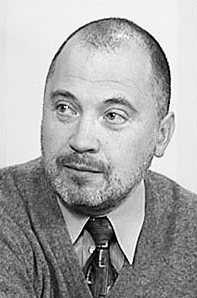 Nikolai Petrov
Nikolai PetrovNo sooner had one election ended than the Kremlin began preparing for new elections to be held one year from now. Former Yamal-Nenets autonomous district Deputy Governor Vladimir Vladimirov has been appointed as the new governor of the Stavropol region, replacing former Governor Valery Zerenkov. The Kremlin hastily appointed Zerenkov one year ago on the eve of what it called "direct gubernatorial elections." Zerenkov had limited success governing the region, experiencing problems with the local elite, interethnic tensions and the social and economic situation. And yet, his removal shows that the Kremlin has not learned anything from the last two years of political crisis that began in the fall of 2011. At least this is true of its policy in the regions, where open and fair gubernatorial elections have yet to be reinstated and the Kremlin continues to appoint "outsiders" as governors.
Let us first take a look at elections. They were held in five regions last year and in eight regions this year. In every case, the Kremlin-backed incumbents won — whether they were newcomers or old-timers. Some won outright, while others won with the help of municipal filters and administrative resources. In Moscow, Vladimir and Chita, the Kremlin was careful to avoid even the hint of a split among regional political elites or among the outgoing and incoming gubernatorial teams. We can refer to this method of putting governors in power as federal appointments legitimized by subsequent elections.
That would not be so bad if the Kremlin would compromise by appointing governors from among the local political elite, but it continues to bring in outsiders, shifting leaders from Yakutsk to Chita, from the Primorye region to Vladimir and from the more northerly Tyumen region to Stavropol in the south.
At the same time, the ruling party and state-owned corporations essentially manage specific regions. Then-presidential administration head Igor Sechin orchestrated Zerenkov's appointment as a way to keep his hand in the shale oil project Rosneft operates in the region. Similarly, Vladimirov, a former business manager for both LUKoil and Gazprom, most likely represents the interests of the latter company.
One year ago, the Institute for Socioeconomic and Political Research, now the main analytical body advising the presidential administration on domestic policy, released a report containing, among other things, recommendations for holding early elections for governors. Without early elections, the report stated, many governors would stand for re-election at the same time State Duma elections are held in 2016, making it impossible to wage effective campaigns of their own while also supporting State Duma candidates. The recent Moscow elections were a trial run of this strategy that ended up somewhat unsuccessful.
At the Valdai Discussion Club in September, I asked Deputy Chief of Staff Vyacheslav Volodin if the presidential administration was planning to hold a series of early gubernatorial elections. Volodin said no, the governors would serve out their full terms. However, it seems that was not entirely true, and the first sign is the early election in Stavropol. That might be followed byearly elections in regions where the governors are weak: Murmansk, Orel, Kalmykia and Astrakhan.
Nikolai Petrov is a professor of political science at the Higher School of Economics.
A Message from The Moscow Times:
Dear readers,
We are facing unprecedented challenges. Russia's Prosecutor General's Office has designated The Moscow Times as an "undesirable" organization, criminalizing our work and putting our staff at risk of prosecution. This follows our earlier unjust labeling as a "foreign agent."
These actions are direct attempts to silence independent journalism in Russia. The authorities claim our work "discredits the decisions of the Russian leadership." We see things differently: we strive to provide accurate, unbiased reporting on Russia.
We, the journalists of The Moscow Times, refuse to be silenced. But to continue our work, we need your help.
Your support, no matter how small, makes a world of difference. If you can, please support us monthly starting from just $2. It's quick to set up, and every contribution makes a significant impact.
By supporting The Moscow Times, you're defending open, independent journalism in the face of repression. Thank you for standing with us.
Remind me later.






